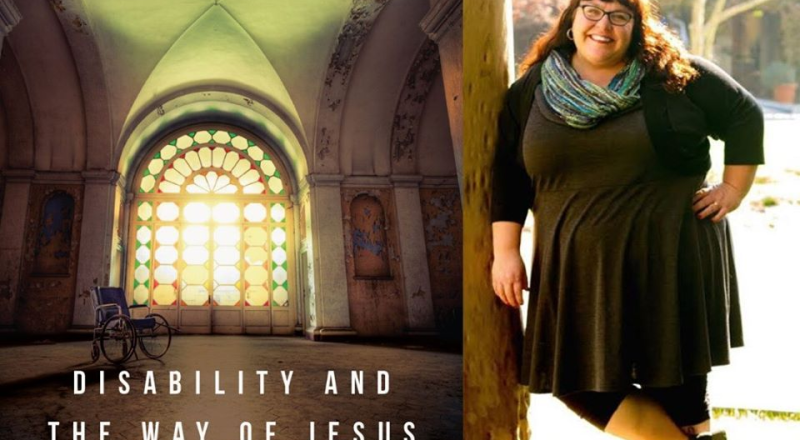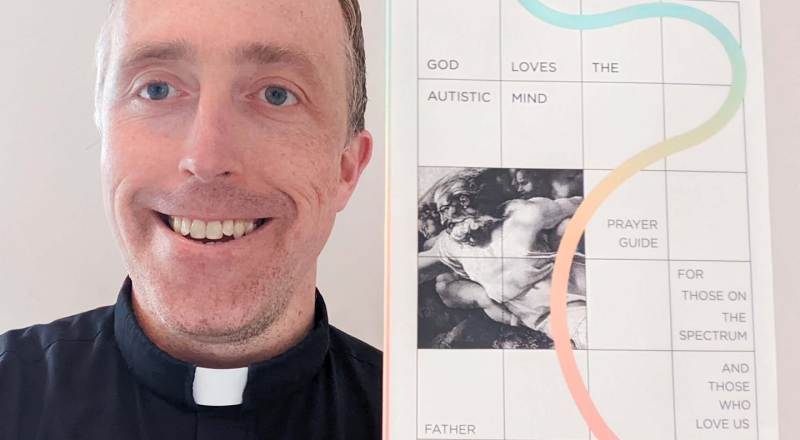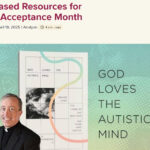Teaching Students with Autism in a Catholic Setting by Deacon Lawrence Sutton is not a perfect book, but at the moment, it is the first book in this niche and overall a pretty good book. I reviewed it recently for The Linacre Quarterly (journal of the Catholic Medical Association). I want to share that review with you.
I’m not sure about copyrights. If you have access to The Linacre Quarterly via your institution or as a member of the CMA, click here. If not, click here, then ask me to give you access (provide information about yourself in the request).
The Positives in Sutton’s Book

There is a lot to like in Teaching Students with Autism in a Catholic Setting. I divide my review into three categories: good things you easily see elsewhere, good things specific to this book, and three minor issues. I will not cover the first as I presume readers here already know about those things, like a chapter giving a decent summary of autism.
In the second category of uniquely good things, I note:
One particularly good point throughout this book is that it makes different concepts concrete [lots of examples]. […] Chapter Five titled, “Using Preferred Interests When Teaching Students with Autism” (49) brings up a topic one may or may not find it in other books. It is quite helpful to see that aspect. […] Sutton’s discussion of peer mentors to help autistic students in Chapter Seven seems particularly helpful. […] He notes some autistic things specifically related to Catholicism such as autistics stimming more in a homily is a sign he is not doing great in his preaching.
Three Issues With This Book
I noted two minor issues with his book, and one peer reviewer noted another that I added. All three could be resolved in a future edition without an overhaul of the book.
The two things I noted are slight differences in ways to consider autism, where the other perspective should at least be considered: language and ABA.
[1] It is problematic that he does not even consider identity-first language despite most recent articles in peer-reviewed publications supporting its use. […] [2] Deacon Lawrence endorses Applied Behavioral Analysis (ABA) (62-65) without mentioning the significant critiques of it such as it not carrying about the autistic person from inside, being harmful to long-term mental health.
I and most autistics prefer identity-first language (autistic person), and an author using person-first language (person with autism) should at least note this. I cite numerous academic articles on the topic, generally suggesting identity-first language for autistics: I dealt with this before less academically, so you can read it there. Likewise, an unqualified endorsement of ABA is a problem; if someone recommended it in a much more qualified sense noting issues, that would be far less problematic. However, ABA is only three pages of the book, so not a core element. I cite the white paper from ASAN summarizing the issues with ABA, which is a good summary of the issues.
The last issue was something a peer reviewer noted, so I added: “Sutton limits himself to the classroom and does not get into the managerial aspects like how to fund extra help for an autistic child where a Catholic school.” This could easily be another chapter added.
Judgment of This Book
As I noted, this is the best book on the topic. However, we need to note its limitations, especially an unqualified endorsement of ABA, without even considering the well-documented negative effects in many cases.










[…] it as I was writing a review of a prior book of his & did not want to confuse my mind. (That review of Teaching Students with Autism in a Catholic Setting was published this spring.) I finally got to reading it recently and found it to be a […]
[…] them for this & indicate I have no animosity to them, as this was done pretty quickly. (I wrote a relatively positive review of another of their books recently and would do so again if a book deserved it.) Had I known it would be pulled later on […]